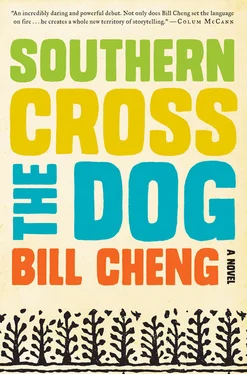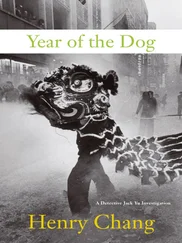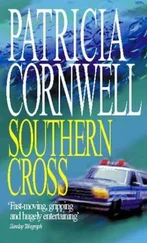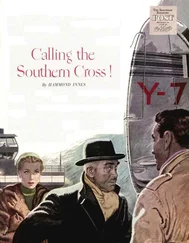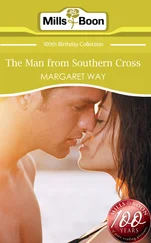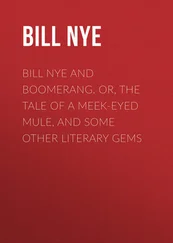Boy, can’t you read?
The man pointed to the WHITES ONLY sign in the window.
I just need one box, mister.
You got some nerve, boy. I ain’t even supposed to let you in here. Now, why don’t you be a good fellow and go on over to the colored grocer. I’m sure he’ll sell you some wash powder.
They don’t got that kind. I need Dr. Sloan’s specific.
Robert pushed the quarter toward him.
See? I got money.
Son, you ain’t got coin enough to get me to sell to you.
I see it right there. On that shelf there. If you—
Not for you it ain’t. As far as you’re concerned, that shelf is empty.
Please, I—
Don’t you raise your voice to me, boy! Now when I say I don’t sell to coloreds, I don’t sell to coloreds. Now scoot out of here before anyone catches you!
Robert’s hands were damp with sweat. Something hot was building under his eyes. He put his palm down on the counter and felt for his quarter. His lip trembled. He stood there for a moment, not moving.
What are you doing now?
I need that wash powder, he said.
The man stared at him, astonished. He stood up from his chair and took down the box of wash powder. He slammed it down on the counter.
There. Dr. Sloan’s. You happy? Maybe it’ll wash the muleheadedness out of you.
Robert blinked. He reached for the box.
Thirty-five cents, the man said.
Robert looked at the box. On the side, he could see where someone had written in dark pencil, 17¢. He placed another dime on the counter and went out.
ROBERT WALKED SOUTH ALONG THE edge of town, toward the river. He could hear it beyond the lawns of sweetgrass and reed beds, rilling over the rocks. The sun was high overhead, and his clothes had started to stick to him. Flies buzzed his eyes and ears and mouth. He swatted but they circled and darted back. Finally, he made it out to the landing beneath Pontotoc Crossing where the river drifted calm, flecked with cottonwood dander.
Robert swung the flour sack from off his shoulder. He stripped off his clothes and ran out beyond the shallows. The river rose up to his hip, then took him completely. He dove down, the sun spangling at the surface. He came up and sucked down the air hungrily, passing his hand through his hair. It was calm, save for the crappie splashing against the river’s skin, their ringlets widening toward him. He dove again, toward the river bottom where it was cooler. Something caught the light.
He thought of the grocer and let himself dare that it was a half dollar. At each pass, he tried to kick toward it, but the water brought him up again. He found a hold on a rock shelf, and he let the air bubble out of him. He shot his hand toward the thing, a brown cloud blooming from his fingers.
When he came up again, he brought the fist of mud into the sun. He pressed through it, feeling for the thing. It was small and hard, like a shell or a bead. He rinsed off the mud, and then held the thing up between two fingers. A single gold tooth.
After his swim, Robert found a place to warm himself on the bank. He unpacked the dress and spread it out in front of him. The stains were dark as blood. He soaked the dress and sprinkled Dr. Sloan’s over the blotches. Then he worked the small yellow flakes with his fingers, building the lather into a dull head. His hands began to sting. He plunged the dress into the streambed and raked it against the bottom stones. Then up, again, then down, washing the yellow, odored soap downstream. He twisted the dress into a rope and slapped it against the flat stones before he unrolled it and started again.
Robert hadn’t river-washed in years, but that old tightness came back into his arms. He squared his shoulders, the muscles lining up, his elbows primed like pistons. Scuttle bugs flitted across the surface of the water, and he felt their wings shy against his ankles.
Dr. Sloan’s left a stink in the water like weak tea, but by the second hour, the stain started to give. Robert stretched out the fabric, and the brown runneled over his forearms. He dunked it into the water. The water plopped near him and at first he thought it was a fish but then there came another and another, cracking on the bank. He looked downstream and there were a gang of five white boys, throwing rocks.
Hey! one of them called out. He ain’t got no clothes!
Robert hurried on his trousers, but the boys raced up to the landing before he could light out. They were each of them carrying fishing canes.
You the sumbitch soaping up the crick! one of them said.
Robert muttered something. He could feel his voice cracking and he covered it with a quick cough. The boys circled around him, fussing through his things. They upended his pack and picked through his food.
Fellas, look at this!
One of the boys poked the dress with the tip of his cane. He lifted it.
Your daddy give this to you? You do something sweet for him?
Before he knew what he had done, a dull sick feeling went up his arm as the boy wheeled backward, gripping his nose. For a moment all was quiet. Then the boys dropped their poles and let out a cry. They piled on top of him, kicking and punching and butting with their broad thick heads. Robert wriggled free. He found his footing and managed to get to the box of wash powder. It flew from his hands in a fine cloud. There was a terrible scream and everyone turned toward the noise. One of the boys stood there, stunned, his eyes clenched tight and rimmed with red, his mouth twisted open.
Oh my God, you blinded him! You blinded him!
His friends tried to dunk his face into the water, but it was too shallow and he ended up beating his forehead against the stones, blubbering with each thrust. Finally, someone managed to spill enough over his face to clear out most of the soap. They picked up the boy and hurried him away.
Robert stood where he was, his chest rising and falling. After they’d gone, he washed his hands in the water. His mind would not settle. He saw the sun on the water. The trees moving. The air moving across his back. His fingers were burning. Robert saw the dress. The stain was hardly noticeable now. The tooth, he realized, was gone. Either stolen or knocked into the water. Somewhere, a church bell was ringing. The afternoon service was being let out. He put on the rest of his clothes and started on his way back.
On the road through Bruce, folks trudged slow in their church clothes. They walked stoop backed with the sun above them. Robert could hear the shop bells twinkling, doors banging lightly against the jambs. The windows were thrown open and the curtains tied back, and he could see inside the shops, and the people inside could see him, Hermalie’s dress slung about his shoulder. In one window, it was dark enough to catch his reflection — his face swollen and cut, his trousers speckled with mud. He wondered what part of him looked like his brother. A car honked behind him, then swerved to avoid him. He began to cry.
When he got back to the house, he rushed behind Miss Lucy’s azaleas and fell to his knees. He felt the roar of acid in his throat. In one swift spasm it spilled out of him. He lurched again. A door opened and shut. He wiped his eyes and saw the Widow Percy watching him from across the street, her dog steadied in a chain around her fist.
THAT NIGHT ROBERT SLEPT IN fits and starts. When he woke, his head was fuzzed with dreaming. He couldn’t remember what he dreamed but it was still there, down in the meat of him, buzzing uneasy. He pulled his covers over his head in spite of the heat and let the sleep take him under again. Sometime after, he awoke to the noise of someone coming into his room. He opened his eyes, and there was Hermalie, framed in the doorway. She was still in her church clothes — a cotton blue dress and white stockings. He hid his face with his spread.
Читать дальше
